This article was co-authored by Alexandra Janelli. Alexandra Janelli is a Certified Hypnotherapist, Anxiety & Stress Management Coach, and owner and founder of Modrn Sanctuary, a holistic health and wellness facility in Philadelphia, Pennsylvania. With over 10 years of experience, Alexandra specializes in helping clients push through their roadblocks to achieve their goals using her hypnotherapeutic approach. Alexandra holds a BS from the University of Miami. She graduated from the Hypnosis Motivation Institute with an Advanced Training Graduate Diploma in Hypnotherapy and Handwriting Analysis. Alexandra is also a Certified Life Coach from the iPEC Coach Training Program. She has worked with Academy Award Nominee Actors, world-renowned photographers, singers, top-level executives, and professionals across many sectors of business. Alexandra has been featured on MTV, Elle Magazine, Oprah Magazine, Men's Fitness, Swell City Guide, Dossier Journal, The New Yorker, and Time Out Chicago.
This article has been viewed 61,989 times.
In life, we experience many painful situations like being hated, ignored, tested, misunderstood, underestimated, mocked, troubled and many more. Many of these are not due to our mistakes either. Some people come close, bond and then hurt you and leave. If you don't deserve it, you should not be treated this way. This is to say that pain from any source could be kept away if you are alert of the following things.
Steps
Know the all round effects of pain.
-
One must know that pain is not only painful; it is, one in a hundred times, helpful too. Usually, though, it is undesirable and simply unwanted. Pain is scientifically said to last not more than a few minutes. It is the one who is suffering who constantly reminds themselves of the past and hence it inflicts more than the real experience itself, over and over again. Pain affects in such a way that it stops you from participating in activities with your usual vigor.[1] X Research source
- You may feel laid back.
- You may not do the things you did before because you are hurt.
- You may shut yourself emotionally or physically or both for as long as you feel upset.
- Some even get their frustrations out on others who are innocent.
Reason within yourself.
-
Go back to your past and think of all the things you learnt being hurt. There will be quite a few lessons, from being weaker to stronger in many different ways. Why did you not learn those things before being hurt? If you are capable of learning something why not learn it on time? Why did you wait for pain to teach you or to get you learning?
- Pain is by itself very deep and hurting but reasoning and understanding the situation is of paramount importance. You will be living and dealing with many such events. And you must stand up and fight for yourself, your loved ones and your interests. To be able to do that and to do justice to yourself, you must not let any pain shun you or suppress you for any longer.
Get up and get going.
-
Be aware of what is happening immediately around you. Because when something happens around you it is expected of you by your relatives, neighbors, and friends to know what it is that happened. If you are asked and you are blank, the blankness gives an impression of ignorance or lack of interest. Although it is also expected of a smart individual to not disclose too much information, it is advisable to be calm and know what the present situation demands in terms of emotional output and alertness.
Know what matters to you.
-
Since a conversation is a major deciding factor about an individual's strength and weakness, conversations become the basis of how people treat you. If you know your priorities you could stand by them and defend yourself.[2] X Research source
React only if you feel like it.
-
People could hurt you only when you allow them to step into your space. If you do not allow them and they tease you anyway, they feel unattended and don't feel completely satisfied about hurting you. You seem about alright to them while you continue being the way you were in spite of them mistreating you.[3] X Research source
- If you sense something brewing, or if you know that someone is about to trouble you, try not to react to their jokes or conversation. Some conversations are not as innocent as they sound in the beginning. It is used as a bait to catch your attention. If it interests you, you may participate in it. Your being hurt depends on your participation.
- The more affected you look, the more it gives an impression to them that they won.
- The more bored of them and uninterested you would appear to them, the more they will turn to someone else to harass.
Have a defense system.
-
Surround yourself with your emotional strength. This could be done negating or denying to fear any threats. When you deny giving up on any fearful thoughts outright, the fearful thoughts subside. The more you fear, the more you feel weak and helpless. The more you try and make efforts towards being more and more positive and powerful, the more it will help you in being stronger emotionally.
- All strength begins in the inside and then it works to the fore!
- Your inner strength or 'will' will be the strongest when you have the assurance that you were either right or you didn't do anything wrong intentionally. Those who intentionally hurt others tend to have lesser or no inner strength. They rely on others for much of their strengths.
- Pick your defense. It could be:
- Silence. Silencing the harasser or the source of your pain by confronting and finishing the conflict.
- Having something else like a resourceful activity to divert your mind.
- Reminding yourself the reason why you would not fall prey to pain or someone's tricks. It could be that you are greater than them, that you have better things to do like an aim than stay in pain, that you would return back and answer the source of all the agony with your victory to clarify where you stand.
Positive aggression.
-
In order to keep hurtful judgments of people away, you must learn about your major interests. When you know your interests, you will be a little aggressive about protecting them when someone tries to manipulate you. People often, knowingly or unknowingly try to manipulate or hurt you based upon what you have said. Once they know that you walk the talk, they will treat you keeping your strengths and attitude in mind.
-
Tact is a strong guard. It works like a scarecrow in farms to keep unwanted elements away from destroying the farm. Being tactful begins with knowing your interests and its application. This means that you give a sharp response to someone trying to take you for a ride. This response of yours is not explicitly disrespectful, but it clarifies to the receiver that you don't take rubbish readily. They will have to bite their tongues for attacking you. Which they will and they will go back unhappily messing with the wrong person. Look smart so people think twice before rubbing you in the wrong way.[4] X Research source
- The choice of words that a tactful person uses are direct and assertive, such as "I don't find it funny", "Maybe you need a break", "I prefer to finish my work right now", etc.
Be aware.
-
Understand that people who pain others for no mistake of theirs have low morals and moral strength. Hence, people with morals have an upper hand over harassers. This is because moral strength renders great strength in the middle of a fight, argument or in any difficulty.[5] X Research source
- The one with strong morals will always have his or her chin up. Their core or belief could never be shaken up by anyone, permanently. At times, some people deliberately try to hurt someone who seems too strong. These strong people seem strong because of a sense of belonging and after doing praiseworthy or good deeds to others.
Build your morals.
-
Moral strength only grows with time and it works like roots to trees in very painful times. You will feel stronger than others who would be in a similar situation who do not indulge in any good work or charity to the unknown. People with moral strength are almost always in a sane mind and are willing to help. They are not too shocked, too helpless or too vulnerable when people see them. Although they may experience these emotions but no one will be able to get the better of them. One of the most rewarding acts is of giving or helping others.[6] X Research source
- You could help others without a sacrifice.
- Or help by incurring some cost to you.
- You may help others by sacrificing any of your wants or by going out of your ways. To each his own!
- While all these will technically help others, it will morally build you and strengthen you before you realize it.
- What you get in return? You could give while expecting something in return, expecting more in return, expect nothing in return, give while feeling frustrated, or give and feel happy for no reason. Try to give without expecting and allow yourself some time to adapt this attitude if you will.
- There is no reason to judge someone who is not helping anyone or those who are receiving your help.
Be clear.
-
Be aware that what you owe to do or fulfilling your responsibilities or helping someone is your decision, but these do not ensure freedom from pain by default. Pain should be tackled and it could be lessened with your efforts.
- Know the importance of the kind of troubles you face and give only as much importance to it. Overemphasizing painful words or acts is not the best attitude towards it. Let people be left alone with their inputs. They need not be punished or thought of by you.
- Whenever a new painful situation arises, you get to exercise your reserve of strength or willpower, or develop stronger guards than before. Completely desensitizing yourself from pain will only deprive you of one of the many emotional experiences you are allowed to feel.
You Might Also Like

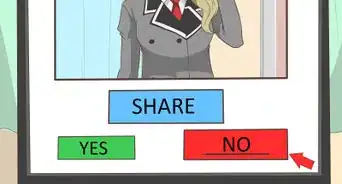


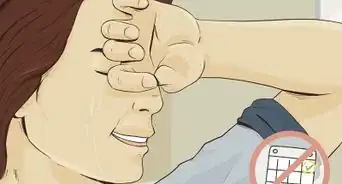




 How to Cope When You Think No One Cares About You
How to Cope When You Think No One Cares About You

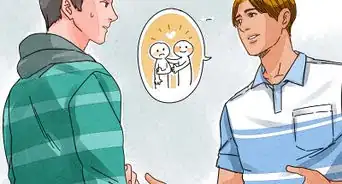


Expert Interview
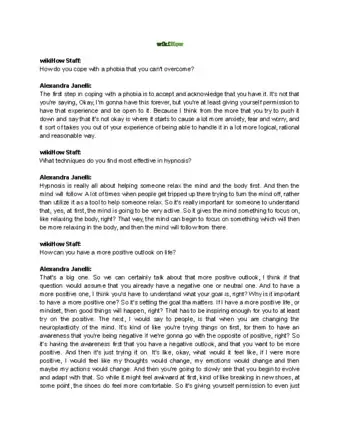
Thanks for reading our article! If you'd like to learn more about dealing with emotional pain, check out our in-depth interview with Alexandra Janelli.
References
- ↑ https://www.psychologytoday.com/us/blog/fulfillment-any-age/201310/7-practical-strategies-overcome-emotional-pain
- ↑ https://www.psychologytoday.com/us/blog/fulfillment-any-age/201310/7-practical-strategies-overcome-emotional-pain
- ↑ https://www.psychologytoday.com/us/blog/emotional-fitness/201207/the-best-ways-deal-people-who-hurt-you
- ↑ https://www.psychologytoday.com/us/blog/emotional-fitness/201207/the-best-ways-deal-people-who-hurt-you
- ↑ https://www.huffpost.com/entry/6-cool-things-to-do-if-so_b_14481822
- ↑ https://www.huffpost.com/entry/6-cool-things-to-do-if-so_b_14481822
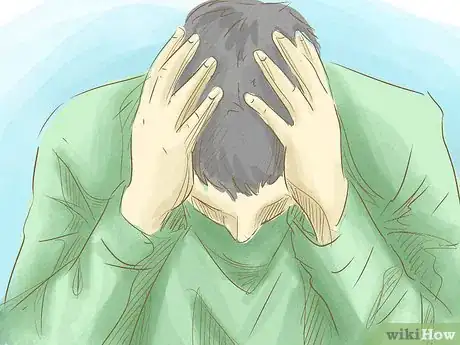
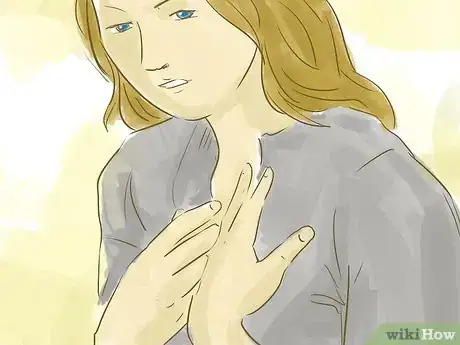
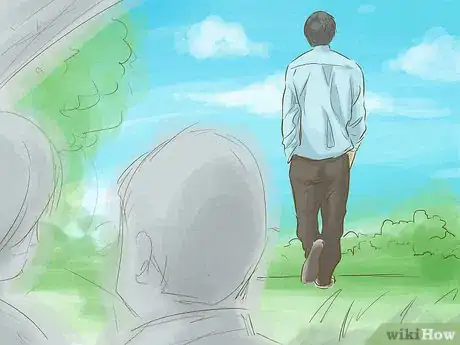
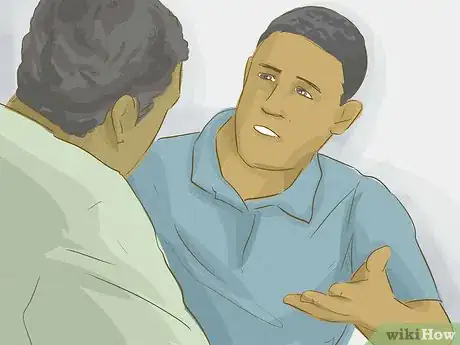


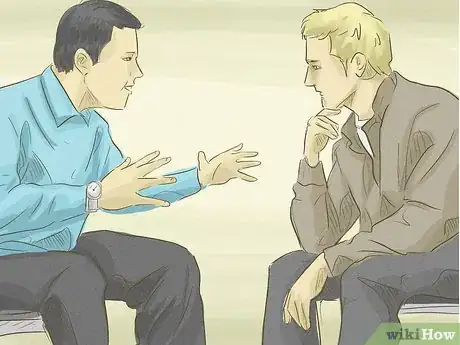


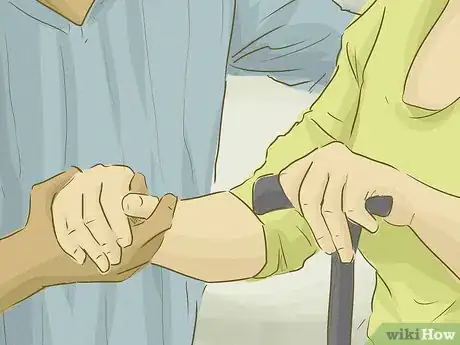
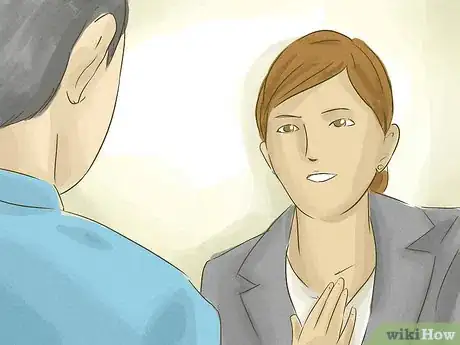














































Medical Disclaimer
The content of this article is not intended to be a substitute for professional medical advice, examination, diagnosis, or treatment. You should always contact your doctor or other qualified healthcare professional before starting, changing, or stopping any kind of health treatment.
Read More...